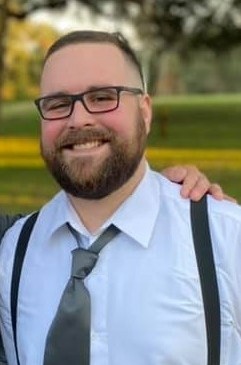Pulling Back the Curtain on PTSD
This PTSD Awareness Month, Shepherd Center’s SHARE Military Initiative outreach coordinator, AJ Veal, explains how PTSD can affect veterans, service members, and first responders.

By AJ Veal
Outreach Coordinator and Veteran
Shepherd Center’s SHARE Military Initiative
This PTSD Awareness Month, I want to shed some light on how post-traumatic stress disorder (PTSD) can affect an important segment of our population — veterans, service members, and first responders. The following statements are based on accounts from the hundreds of heroes I have listened to over the past three years as outreach coordinator with Shepherd Center’s SHARE Military Initiative. I hope it paints a picture of what they go through and how they end up reaching out to organizations like SHARE that can give them the help they need.
In my role, I come into contact with some of America’s greatest patriots who gave everything for their country — and then some. Some clients are still serving, some just separated from service and some have been out for a long time. We see special operators, engineers, pilots, infantry, medics, clerks, supply, cooks, and every other job function that falls under the Department of Defense. They all present a similar story — facing adversity, overcoming that adversity to complete the mission, and coming home feeling different, lost and alone.
They have experienced and witnessed things most Americans will never have to and, in doing so, are left marked by those experiences. They experience vivid flashbacks, taking them back to a traumatic event, seeing the faces, reliving the smells, feeling the adrenaline rush, etc. They wake up in cold sweats, angry or sad. They feel nauseous, anxious or super alert. They have little patience and have a hard time focusing or enjoying the things they once did. Building or maintaining a connection or relationship with friends and loved ones becomes harder. The shadow of feeling abandoned and lonely creeps in. They often feel bewildered, frustrated, ignored, confused, or stuck by the time they speak to me.
The list of symptoms above that many of our clients at SHARE are seeing, feeling and acting upon can be attributed to PTSD, and a variety of other mental health concerns, which, in most cases, have never been addressed. First, you don’t usually talk about mental health while in the service. That’s where it starts. It can affect your job duties, security clearance, leadership/gaining rank opportunities, etc., so most just hold it in and don’t talk about it. Then, when they come home, many veterans have to get a job, be a mom or dad, and go on living as “normal.” They wake up, put on some slacks, go in to work by 0900, and thank a customer with a smiling face, then wash, rinse, repeat.
The unravel begins. Small events begin to snowball, and the symptoms start up. Work becomes harder, communicating with loved ones becomes frustrating and the retreat into seclusion/avoidance begins. It may be followed by copious amounts of alcohol or other substances to numb or pause the pain, feelings or emotions, when in reality it only exacerbates those symptoms and can land some folks in some hot water. Legal trouble, addiction/dependency, and the continued spiral of feeling lost and hopeless continues.
So, they seek help, frequently by direction or ultimatum of a loved one. This is when a client reaches out to us or other high-quality Veteran Service Organizations (VSOs) for help. VSOs exist to break the stigma, offer a warm, helping hand and pay it forward to the heroes and their families. These organizations operate for the sole purpose of helping a true hero, a warrior of a dying breed, get better and back to living. Veterans, service members, and first responders just have to ask for help because the door is always open. Clinical programs like Shepherd Center’s SHARE Military Initiative exist to help that veteran get better and back to as normal as normal can be.
About SHARE Military Initiative
Shepherd Center’s SHARE Military Initiative is a comprehensive rehabilitation program that offers veterans, service members, and first responders help and healing for their daily struggle with traumatic brain injuries and any co-occurring psychological or behavioral health concerns, including post-traumatic stress. Learn more at shepherd.org/share.
Shepherd Center provides world-class clinical care, research, and family support for people experiencing the most complex conditions, including spinal cord and brain injuries, multi-trauma, traumatic amputations, stroke, multiple sclerosis, and pain. An elite center recognized as both Spinal Cord Injury and Traumatic Brain Injury Model Systems, Shepherd Center is ranked by U.S. News as one of the nation’s top hospitals for rehabilitation. Shepherd Center treats thousands of patients annually with unmatched expertise and unwavering compassion to help them begin again.






